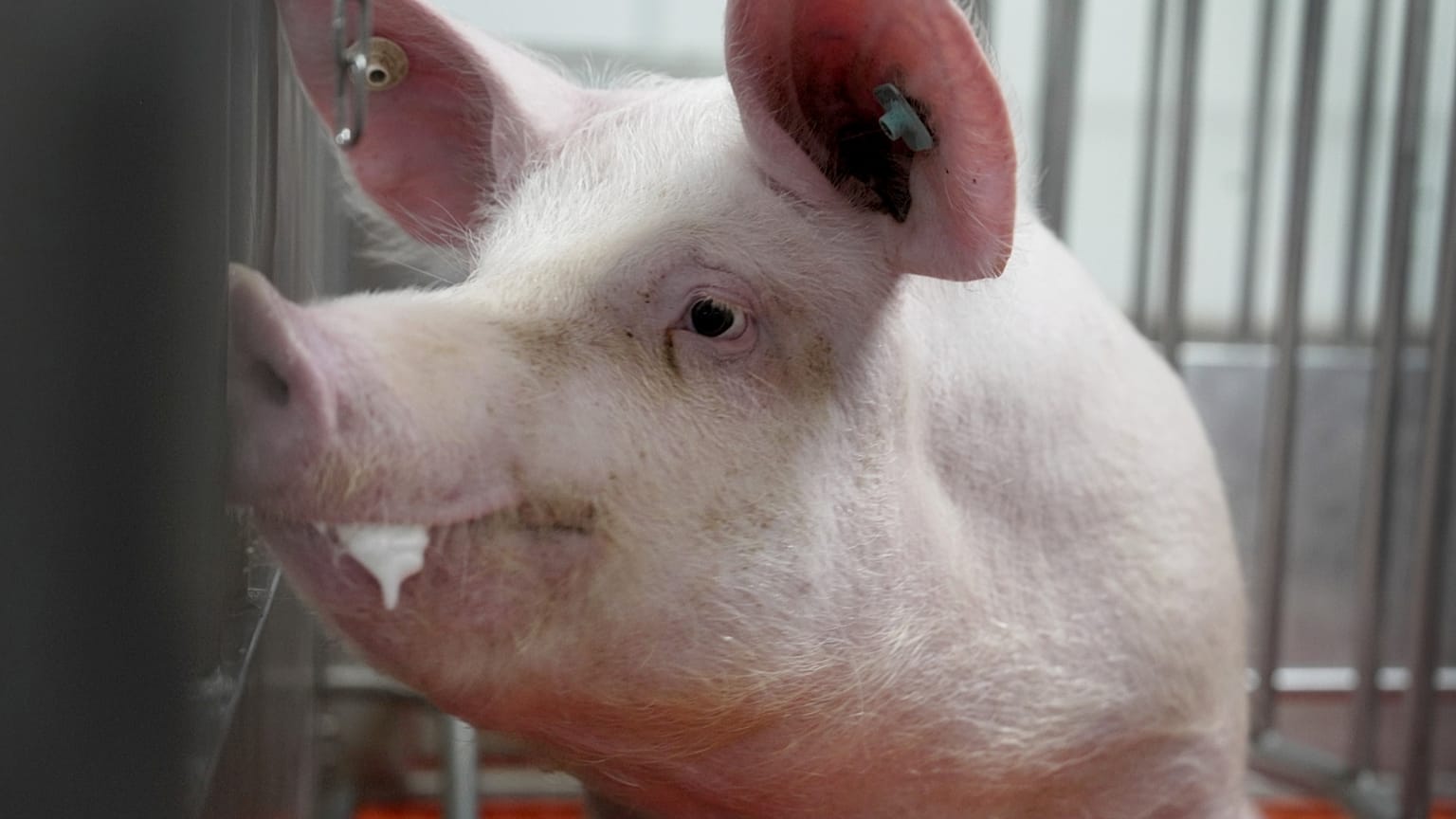Health
Scientists Achieve Historic Pig Lung Transplant in Brain-Dead Patient

Scientists at Guangzhou Medical University in China have achieved a groundbreaking milestone in organ transplantation by successfully transplanting a genetically modified pig lung into a brain-dead patient. This pioneering procedure marks the first time a pig lung has been used in such a manner, highlighting the potential of cross-species organ transplants, known as xenotransplantation, to address the critical shortage of human organ donations.
The transplant involved the left lung of a pig that had undergone genetic modifications to enhance compatibility with human physiology. The operation was performed on a 39-year-old patient who had been declared brain dead, while the patient’s original right lung remained intact. Remarkably, the transplanted lung functioned effectively for nine days, demonstrating a degree of acceptance by the recipient’s immune system. However, early signs of lung damage appeared within 24 hours, and indicators of rejection were noted on days three and six. The experiment concluded on day nine.
Significance of the Research
The findings, published in the journal Nature Medicine, represent a significant step forward in the field of organ transplantation. According to Dr. Beatriz Domínguez-Gil, director of Spain’s National Transplant Organisation (ONT), this study confirms the potential of lung xenotransplantation as a viable option for saving lives in the future, provided that further enhancements are made. Dr. Domínguez-Gil, who was not involved in the research, emphasized that the clinical need for organ transplants is immense, as demand far exceeds supply. In 2022, over 173,000 organ transplants were recorded globally, with more than 45,000 occurring in Europe alone, according to the ONT and the World Health Organization (WHO).
Pigs are considered suitable candidates for xenotransplantation due to the similarity in size and function of their organs compared to those of humans. Previous attempts have included the successful transplantation of genetically engineered pig kidneys, hearts, and livers into human recipients. Nevertheless, lung transplants present unique challenges, chiefly due to the high blood flow they require and their constant exposure to the environment, increasing the risk of infection.
Future Implications and Considerations
Despite the promising results, experts caution that the findings from this study should be interpreted with care. Dr. Iván Fernández Vega, a professor of pathological anatomy at the University of Oviedo in Spain, pointed out that the procedure was performed on a brain-dead individual, which limits the applicability of the results to living patients. He noted that neither the clinical tolerance nor the actual side effects of such a procedure can be fully assessed in this context.
As advancements in gene-editing technology continue to evolve, the potential for pig organs to become a clinical option for transplantation grows. However, experts agree that more studies, including both short- and long-term follow-ups, are necessary to evaluate the safety and efficacy of xenotransplantation thoroughly. While current techniques are still experimental, the success of this initial procedure could pave the way for new strategies to alleviate the organ shortage crisis, ultimately benefiting countless patients awaiting transplants.
-

 Entertainment2 months ago
Entertainment2 months agoIconic 90s TV Show House Hits Market for £1.1 Million
-

 Lifestyle4 months ago
Lifestyle4 months agoMilk Bank Urges Mothers to Donate for Premature Babies’ Health
-

 Sports3 months ago
Sports3 months agoAlessia Russo Signs Long-Term Deal with Arsenal Ahead of WSL Season
-

 Lifestyle4 months ago
Lifestyle4 months agoShoppers Flock to Discounted Neck Pillow on Amazon for Travel Comfort
-

 Politics4 months ago
Politics4 months agoMuseums Body Critiques EHRC Proposals on Gender Facilities
-

 Business4 months ago
Business4 months agoTrump Visits Europe: Business, Politics, or Leisure?
-

 Lifestyle4 months ago
Lifestyle4 months agoJapanese Teen Sorato Shimizu Breaks U18 100m Record in 10 Seconds
-

 Politics4 months ago
Politics4 months agoCouple Shares Inspiring Love Story Defying Height Stereotypes
-

 World4 months ago
World4 months agoAnglian Water Raises Concerns Over Proposed AI Data Centre
-

 Sports4 months ago
Sports4 months agoBournemouth Dominates Everton with 3-0 Victory in Premier League Summer Series
-

 World4 months ago
World4 months agoWreckage of Missing Russian Passenger Plane Discovered in Flames
-

 Lifestyle4 months ago
Lifestyle4 months agoShoppers Rave About Roman’s £42 Midi Dress, Calling It ‘Elegant’









